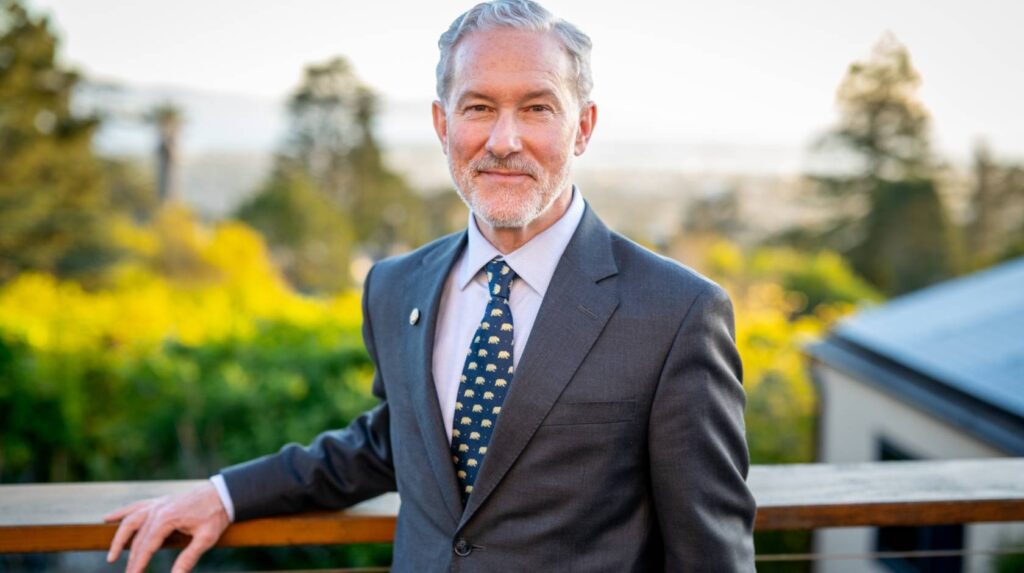Rich Lyons Q&A: The future of innovation and entrepreneurship @ Berkeley

On July 1, Rich Lyons became the 12th chancellor for the University of California, Berkeley. This was especially exciting for the campus’s innovation and entrepreneurship (I&E) community, as Lyons’ previous role was the campus chief innovation and entrepreneurship officer. During his tenure in that role, Berkeley I&E experienced incredible growth, and UC Berkeley became the #1 university for creating venture-backed startups. Lyons launched visionary campaigns, such as Berkeley Changemaker, which helped new students get excited about I&E. (Read more about Rich’s story and journey to becoming UC Berkeley’s 12th chancellor in the recent deep-dive, “Kind of a Big Deal” at Haas News.)
So, Chancellor Lyons is especially well-situated to understand and help the I&E ecosystem thrive on campus. This means more students, faculty, and alumni will have the opportunity to work on entrepreneurial projects, create more innovative research, and find resources to support making their ideas a reality.
Now that Lyons is in this new position, we were curious about his vision for the future of I&E at Berkeley, and how his administration will work to make Berkeley the #1 destination for aspiring entrepreneurs and innovators. See what Rich said in our Q&A below!
What is your vision for the future of innovation and entrepreneurship on campus, and how do you plan to support and expand these areas at UC Berkeley?
The picture that’s painted in my mind for the future of I&E is one that is tightly linked to, and a strong driver of, our University’s mission. The core words of our UC mission statement are “providing long-term societal benefit.” I&E is a really important way that this happens, across all three of our mission-statement “hows” — Research, Teaching, and Public Service.
Why do you think it is helpful for everyone, regardless of their field of study, to learn innovation and entrepreneurship skills?
Because everyone, regardless of field of study, has a lot to contribute to I&E. Innovation is putting new ideas into practice. Entrepreneurship is creating an entity or vehicle for putting ideas into practice. So many people early in their lives think “they do that” — i.e., I&E is for other people, not them. When we effect the cognitive shift from they do that to “I do that,” society wins, and wins big.
You were a student yourself at Berkeley… What do you think makes Berkeley such an innovative place that now ranks #1 on Pitchbook in terms of startup creation? Why is Berkeley the ideal place for startups?
To my mind it comes down to the “Berkeley Way,” by which I mean a set of ways of being that create an incomparable engine for new enterprise creation (including across the civic and public sectors, not just the private sector). One element of that Way is questioning the status quo, i.e., thinking “there has got to be a better way to do this.” Imagine the President of an Ivy League university standing up and saying publicly that “our university is all about questioning the status quo.” Never going to happen.
How do you see Berkeley leading the way in shaping the future of higher education that maximizes positive impact on society?
This is a huge question. A few elements that come to mind include another example of the Berkeley Way, namely our uncompromising commitment to the greater good. We educate, for example, at a scale-plus-quality-level that the great private research universities cannot touch. We are also pioneering new financial models that, while remaining consistent with our public mission and values, allow UC Berkeley to participate more in the economic and societal value we create, enabling a flywheel for even more outstanding research and teaching.
What advice would you give to incoming freshmen to help them maximize their potential and make the most of the opportunities available at Berkeley?
Find your “neighborhood” within UC Berkeley as soon as you can. Or neighborhoods. UC Berkeley is akin to city — it’s important to identify the parts that resonate the most for you. It has neighborhoods for us all. For example, tons of our undergraduates are finding a neighborhood in the community and curriculum we call the Berkeley Changemaker. Keep looking. Keep experimenting.
